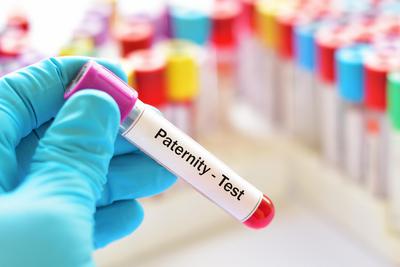Can You Get a Paternity Test While Still Pregnant?
Zero risk prenatal paternity tests can be done as early as seven weeks into pregnancy.

Uncertain Paternity Have You Worried?
As a soon-to-be mother, you may be concerned by a lack of certainty regarding your child's paternity. And if you're a man who's been recently informed you're a soon-to-be father, you may be in limbo over whether to believe in the presented paternity claim. Over the course of a nine-month pregnancy, the last thing either parent wants to stress about is the level of confidence in their child's paternity.
Fortunately, with today's advancements in medical and laboratory science, soon-to-be parents now have the ability to seek prenatal paternity tests to determine a child's paternity before they're even born. Keep reading to learn more about the importance of prenatal DNA testing, the available prenatal paternity test options you have as a parent, and how Health Street is here to help.
The Importance of Prenatal Paternity Tests
Amniocentesis, Chorionic Villus Sampling (CVS), and Non-Invasive Prenatal Paternity (NIPP) blood test services are types of prenatal DNA tests used to determine a child's paternity prior to birth. Considering the possible health and safety concerns stress can have on a mother and her unborn child, prenatal paternity tests should be used to eliminate any anxiety regarding the identity of a child's biological father.
In addition to reducing harmful stress, prenatal paternity tests are also excellent to help establish early support for both the child and parents. With the confirmation of a child's biological father, both parents can move forward with legally establishing paternity in their state. This process is crucial for unmarried parents, in particular, as it declares the birth father's legal parental rights and will be required by the state if either parent wishes to seek child support or custody.
How Does a Prenatal Paternity Test Work?
Prenatal paternity tests work by extracting genetic material samples from either the mother or unborn fetus, which are then analyzed and compared to the presumed father's DNA to determine the identity of the biological father.
There are three types of prenatal paternity testing that can be used. Amniocentesis is a prenatal diagnostic test that requires DNA to be extracted from the amniotic fluid that surrounds the fetus to check for genetic abnormalities as well as determine paternity. Chorionic Villus Sampling (CVS) is another prenatal diagnostic test that can determine paternity but instead uses a vaginal speculum or a needle through the abdomen and uterus to extract genetic material from the fetal area.
The invasive nature of both procedures incurs a small chance of miscarriage or infection in the mother. However, Non-Invasive Prenatal Paternity (NIPP) testing is a safe in-utero paternity test that only requires a simple blood sample to be taken from the mother's arm. Because fetal DNA fuses with the mother's DNA over the course of pregnancy, this prenatal blood test can determine paternity any time after nine weeks of pregnancy with 99.9% accuracy.
Here at Health Street, we offer Non-Invasive Prenatal Paternity (NIPP) testing services for those looking to avoid the potential safety risks of invasive prenatal DNA tests. To learn more, contact us today to book a prenatal paternity test appointment at one of our 5,000+ clinics nationwide.





